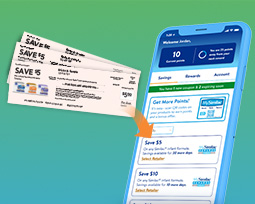-
Search
-
Login
-
My Cart
Cognitive skills encompass your baby's ability to think, learn, understand, problem solve, reason, and remember. From birth, your baby takes in information and begins building up his cognitive skills. You may not notice it at first, even though you’re playing a vital part. The care and experiences you provide have an impact on the development of your baby’s brain.
Your baby learns about their big world through even the tiniest of experiences—from a simple cuddle to organized play. Helping them feel secure and engaged has been shown to increase mental aptitude.
In the first few months, your baby might show their cognitive abilities by simply turning toward bright colors, lights, or a human voice. As their memory and attention span increase over the months ahead, the knowledge they have gained will start to be applied through activity like using their hands and mouth to explore, finding hidden objects, and imitating familiar actions.
By the time they reach 9 to 12 months of age, you’ll see your curious baby start to crave the interaction with you that will further fuel their cognitive development. Providing such interaction is a labor of love that will reward you both.
The following provides you with some proven cognitive activities for your baby:
Reading is a proven way to promote your little one’s thought development. In the first month, begin by reading almost anything aloud to your baby. At 3 months, move to brightly colored picture books that show common objects. In later months, create your own book with pictures of familiar people or things. Their attention span might only be a few minutes, but reading every day will pay off over time.
Doing the same things over and over with your baby provides practice that helps them learn. As your baby matures, you can make a game out of repeating actions or words. This will help build their self-confidence and strengthen connections in their brain throughout year 1.
Expose your baby to a variety of toys and textures, such as soft stuffed animals, bumpy plastic rattles, or smooth wooden blocks. At first, limit toys to one or two simple, colorful choices to help them stay focused. Most objects end up in a young baby's mouth, so make sure the items aren’t too small, and always watch closely.
As baby matures, you can modify a toy or activity. For example, place the ball your baby is enjoying inside a box. This small change will challenge their cognitive skills without frustration.
By age 4 to 5 months, your baby will start to drop things on purpose as a test of their newly discovered ability to influence their surroundings. At this stage, give them wooden spoons, plastic cups, or small boxes, and make this action a game.
As they mature, you can move to interactive toys or activity boards. Show them how pushing a button creates music or opening a toy barn door makes a cow moo. Seeing the results of actions will strengthen your baby’s self-confidence.
Encourage your baby to explore and discover by filling a lower drawer or kitchen cabinet with baby-safe objects of various shapes, textures, and sizes. A baby’s cognitive development can be strengthened by dropping, rolling, and waving objects, along with placing items inside one another.
By 12 months of age, you can expect your baby to realize that items have both names and uses. To encourage this development, give your baby props, such as a soft hairbrush, toy phone, soft-bristle toothbrush, cup, or spoon, and show them the proper way to use each. When they imitate the action, let them know how proud you are!
Join MySimilac™ Rewards for up to $400* in benefits and support throughout your journey.
* Offers may vary and are provided by Abbott and its third-party partners. Additional terms, conditions, and restrictions may apply. Offers may be subject to additional shipping and handling fees. Visiting participating healthcare facilities may be required to claim select offers.

† Submit registration to read details.

† Submit registration to read details.

You’re just a few Clicks away from enjoying the convenience of digital savings from MySimilac™ Rewards.